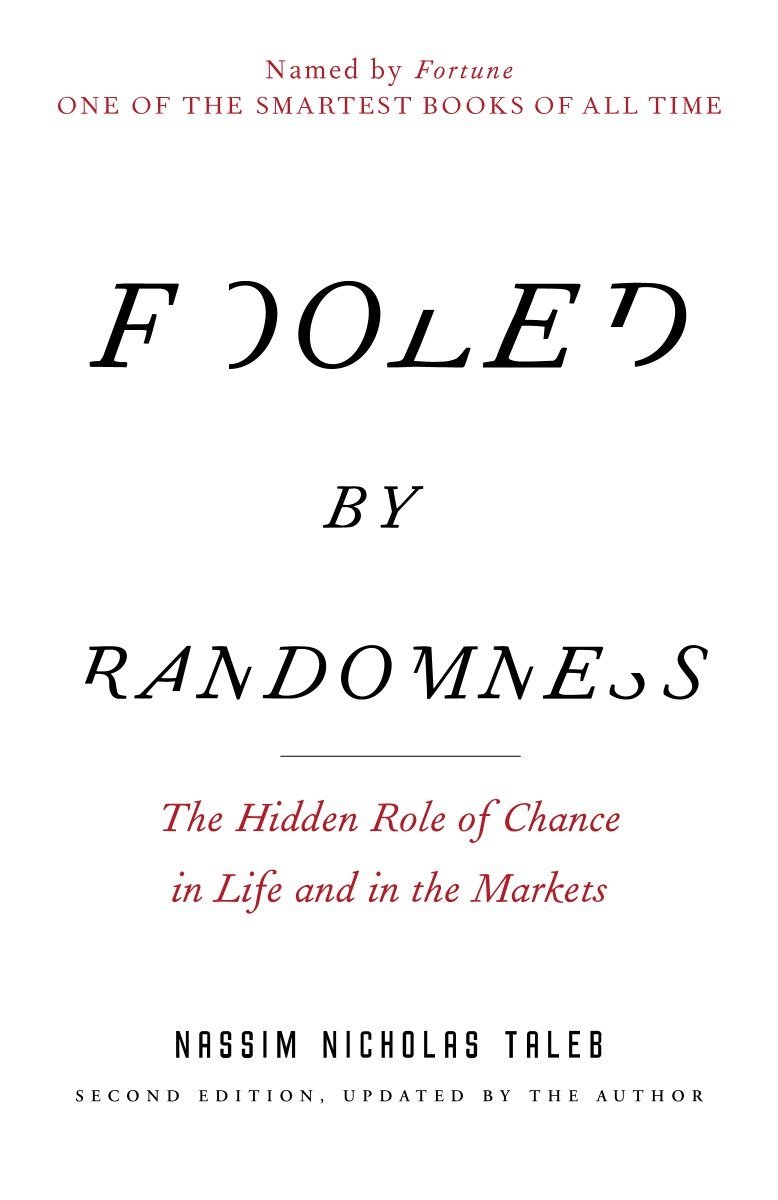Fooled by Randomness – Russian Roulette
Great example from the book Fooled by Randomness:
One can illustrate the strange concept of alternative histories as follows. Imagine an eccentric (and bored) tycoon offering you $10 million to play Russian roulette, i.e., to put a revolver containing one bullet in the six available chambers to your head and pull the trigger. Each realization would count as one history, for a total of six possible histories of equal probabilities. Five out of these six histories would lead to enrichment; one would lead to a statistic, that is, an obituary with an embarrassing (but certainly original) cause of death. The problem is that only one of the histories is observed in reality; and the winner of $10 million would elicit the admiration and praise of some fatuous journalist (the very same ones who unconditionally admire the Forbes 500 billionaires). Like almost every executive I have encountered during an eighteen-year career on Wall Street (the role of such executives in my view being no more than a judge of results delivered in a random manner), the public observes the external signs of wealth without even having a glimpse at the source (we call such source the generator). Consider the possibility that the Russian roulette winner would be used as a role model by his family, friends, and neighbors.
While the remaining five histories are not observable, the wise and thoughtful person could easily make a guess as to their attributes. It requires some thoughtfulness and personal courage. In addition, in time, if the roulette-betting fool keeps playing the game, the bad histories will tend to catch up with him. Thus, if a twenty-five-year-old played Russian roulette, say, once a year, there would be a very slim possibility of his surviving until his fiftieth birthday—but, if there are enough players, say thousands of twenty-five-year-old players, we can expect to see a handful of (extremely rich) survivors (and a very large cemetery). Here I have to admit that the example of Russian roulette is more than intellectual to me. I lost a comrade to this “game” during the Lebanese war, when we were in our teens. But there is more. I discovered that I had more than a shallow interest in literature thanks to the effect of Graham Greene’s account of his flirt with such a game; it bore a stronger effect on me than the actual events I had recently witnessed. Greene claimed that he once tried to soothe the dullness of his childhood by pulling the trigger on a revolver—making me shiver at the thought that I had at least a one in six probability of having been without his novels.
The reader can see my unusual notion of alternative accounting: $10 million earned through Russian roulette does not have the same value as $10 million earned through the diligent and artful practice of dentistry. They are the same, can buy the same goods, except that one’s dependence on randomness is greater than the other. To an accountant, though, they would be identical; to your next-door neighbor too. Yet, deep down, I cannot help but consider them as qualitatively different. The notion of such alternative accounting has interesting intellectual extensions and lends itself to mathematical formulation, as we will see in the next chapter with our introduction of the Monte Carlo engine. Note that such use of mathematics is only illustrative, aiming at getting the intuition of the point, and should not be interpreted as an engineering issue. In other words, one need not actually compute the alternative histories so much as assess their attributes. Mathematics is not just a “numbers game,” it is a way of thinking. We will see that probability is a qualitative subject
